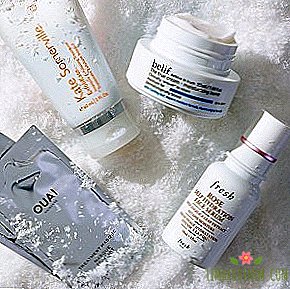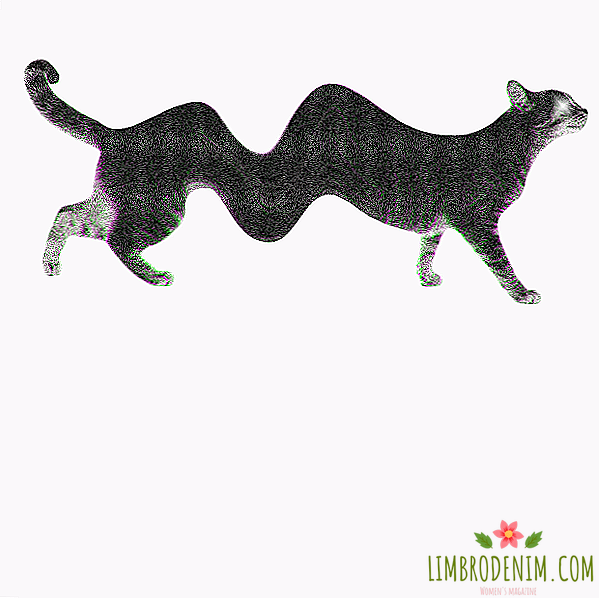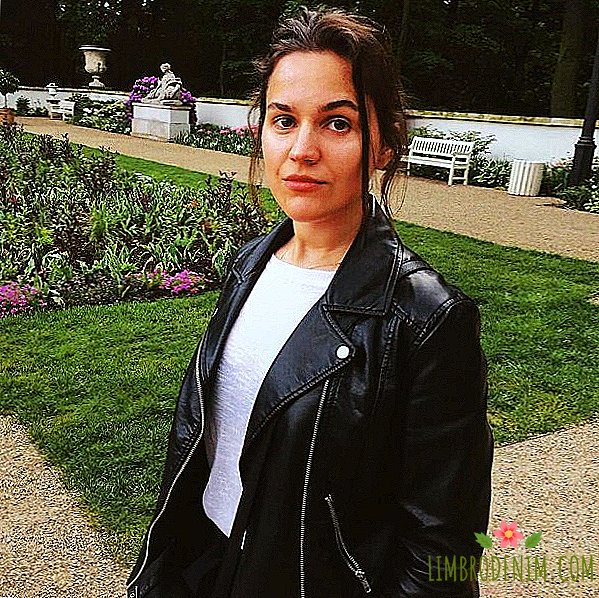Doula Daria Utkina about favorite books
IN BACKGROUND "BOOK SHELF"we ask heroines about their literary preferences and editions, which occupy an important place in the bookcase. Today, Doula, psychologist, UNICEF expert, creator of the online preparation project for childbirth MAMALA Daria Utkina tells about favorite books.

 I was not a reading child, and all children's books like "Robinson Crusoe" passed by me. There was only a story about a little me who asked me to read only Buratino every night, always from the very beginning. In the summer, in the village of my grandmother, who was in charge of the pharmacy, my favorite books were Medicinal Plants of the Upper Volga Region and the Vidal medicinal reference book, especially the section on psychiatry.
I was not a reading child, and all children's books like "Robinson Crusoe" passed by me. There was only a story about a little me who asked me to read only Buratino every night, always from the very beginning. In the summer, in the village of my grandmother, who was in charge of the pharmacy, my favorite books were Medicinal Plants of the Upper Volga Region and the Vidal medicinal reference book, especially the section on psychiatry.
Only at the age of twelve I began to read a lot and with pleasure, thanks to my girlfriend's mom and her love for Remarque. At school, reading was my favorite activity, and I was distracted only by the essentials: walks with my girlfriends, love afflictions and boring lessons. I really wanted to understand how the world works, and the writers of the 20th century helped me a lot. I read everything: Cortasar and Zamyatin, Mayakovsky and Nabokov, Tsvetaeva and Sylvia Platt, Salinger and Vonnegut, Pelevin and Kesey - in general, the whole set of a decent Soviet person.
There was a period at the university when I was absorbing scientific texts, reading Kant at the Avant festival, Melanie Klein at breakfast and Winnicott with Vygotsky at any other time. Proust is forever associated with the first months of motherhood - friends joked that it was necessary to give birth to the chakra of love for such tediousness to open. Cortazar and company became my guides to the adult world of feelings, love, friendship, revolutions and life. Vygotsky forever changed his attitude to culture, "norm" and "pathology" and views on human development. Winnicott presented the idea of how healing a simple acceptance of another person can be. Sapolsky supports now.
I wonder how the same authors change for me as I grow up. The teenage delight of Tsvetaeva, her fragility and tenderness, gave way to a much less enthusiastic and complex attitude after becoming acquainted with the topic of motherhood. Now in the books I most of all appreciate the vaguely perceptible feeling of how the author looks at the world. Not only about what, but also how he writes: in what words, how simple, with what attitude to heroes and situations. I love it when it is in tune with my condition or reminds me how else you can look at others.
I have always loved the book recommendations of my scientific director Marina Bardyshevskaya, now I look at the stacks of books on the table of my psychotherapist. I read the "Bookshelf" rubric and non-fiction reviews, and on Facebook - the announcements of Pavel Podkosov and the recommendations of psychologists Marina Yuminova and Polina Rychalova.
The best place to read for me is a bath, preferably for a few hours. Or the beach to bask in the sun, read, cool in the water and read again. I like to read books quickly, I vainly - but with two children and work even on the beach I rarely have such an opportunity. So I read at breakfast, before going to bed, in a taxi and the subway - whenever there is time (and I was not stuck on blogs).
I haven’t been buying paper books for a long time because they occupy all the space. I tried to take children in the library, and adults pass on to others - but I have many rare books that were published in small editions, and I realized that I didn’t want to part with them. For this birthday, I was given pajamas and champagne, and I realized that for such a hedonist set a stack of paper books is necessary. And again I allowed myself to buy, now I am doing new shelves at home. In general, I am one of those who have dopamine from buying new books sharashit stronger than from dresses.

Pam england
"Birthing from Within: An Extra-Ordinary Guide to Childbirth Preparation"
When I opened this book, it turned out that there are women on the other end of the world who look at childbirth just like me. It is very inspired and empowered. We then only came up with our format of preparation for childbirth - courses that I myself would like to attend. And, of course, it was clear that there was still a long time to look for methods and practices. And here again - and a real gift: for ten years someone has been thinking about all this and thinking in the same way.
For the first time I took to read this book from a friend, and then I was already brought a copy from America. After reading, I went to study the “Birthing from Within” approach to Israel and the States - this decision in part led me to work as a dole and support women in childbirth. A few years later, books appeared where the influence of the Ingland approach was noticeable. For example, in the book "Sacred Pregnancy" inspired by beautiful ceremonies for mothers, and Homebirth Cesarean author Courtney Dzhareki made a collection of stories about how a necessary change in the birth plan can be psychologically traumatic for a mother.. Pam's new book "Ancient Map for Modern Birth", in my opinion, is less balanced and more radical as to what kind of births are “good” and how to give birth “correctly”.
David treleaven
"Trauma-Sensitive Mindfulness: Practices for Safe and Transformative Healing"
I am reading right now. Working with mindfulness practitioners, I see that sometimes they bring traumatic experience to the surface - and then we also need the support of a psychologist. Considering that approximately one in five women has experience of sexual abuse, a lot of traumatic situations emerge. It turned out that there is a whole laboratory for studying the side effects of the practice of awareness. And this book for specialists helps to clarify how to apply the mindfulness approach in a manner that is close to me.
Anna Kuusmaa and Anastasia Izyumskaya
"Mom at Zero"
This is the first book where I wrote a whole chapter. Everything happened very quickly and unexpectedly for me. I made a group of "Carefully to myself" on Facebook to support moms in postpartum depression, and Nastya was just writing a book about emotional burnout. We somehow corresponded about how depression is different from just “mom at zero”, and as a result of our conversations Nastya suggested that I write about this in a book.
Now I sometimes go to the presentation of the book and answer the questions of parents, what is postpartum depression, how to notice it and how to help myself. I hope in the summer to launch an online support project for women with mood disorders after childbirth and slowly remove the taboo from the taboo topic about the "bad mother."
"Lectures for pregnant women" 1959
My find with Ozon. I love this book as an anthropological artifact. She reminds me of how quickly our ideas about what is “normal” in childbirth and motherhood are changing. Half of the book - descriptions of childhood diseases, for each of which in 2018 there is a vaccine. And the other half - advice to women about childbirth. My favorite part is the chapter about the collective farm maternity hospital. In fact, this is what the 21st century is called the birth center. The place where the pregnancy leads and takes birth is not a doctor, but a midwife, which gives special attention to every woman(Birth center - maternity centers with more "home" conditions common in the United States and Europe than in the ordinary birth ward. Often they are satisfied at hospitals where there is reanimation, and patients are allowed to give birth there only if the pregnancy proceeds calmly and without complications. Ed.). Doctors from the CIS travel regularly to learn from their colleagues from Europe, but in reality maternity centers quite peacefully existed seventy years ago in Russia, they simply called themselves not so pretty.
Penny simkin
Prevent and Treat Dystocia, The Labor Progress Handbook:
This book gave me a girlfriend, it seems. This is a classic of literature for those who are preparing or preparing others for childbirth. I am very sorry that Penny Simkin translates little into Russian. She is such a major Doula grandmother of All America, she came up with the international organization Dole DONA, where I am certified this year. I like the approach of Penny because it is completely non-esoteric and very, what is called, down-to-earth, with internal support. Somehow she was criticized: why did she even decide that she could write books about childbirth for parents, and she also referred to the research - she is not a doctor at all. To this, Penny replied: "Yes, I am not a doctor, but I can read."
Penny has written another book that I love dearly - "When Survivors Give It Away." It is about women who have been sexually abused in childhood, and their experiences of motherhood. I dream that the book will appear in Russian, because these are basic things that any specialist in the field of assistance in childbirth should know.
Rebecca kukla
"Mass Hysteria: Medicine, Culture, and Mothers' Bodies"
The book of the author with a funny name - in fact, the study of attitudes towards the female body during pregnancy and childbirth, depending on changes in culture. I have a lot of favorite moments in the book. About the alienation of women from knowledge of their own body, when other people or devices tell her about her state of health and the state of the child. Another very cool line is traced about how medieval ideas about harming a child that a woman can inflict while thinking or doing something “wrong” moved into the twenty-first century and transformed into endless recommendations for women. I love it when there are a lot of facts in the book, references to studies and all sorts of curious details on the subject I'm passionate about.
Naomi wolf
"Misconceptions: Truth, Lies, and the Unexpected on the Journey to Motherhood"
The book about the pregnancy and childbirth of the author "The Myth of Beauty" and "Vagina". In principle, it is about the same, only in the context of motherhood. I am sorry that it was not translated into Russian, because we really lack books of this kind, which would be more than just recommendations. And it is also full of nuances about motherhood, confirmed by research. For example, how the woman perceives pregnancy affects the outcome of childbirth, about hormones and relationships - all through the prism of the author’s personal history. Sophisticated things are well balanced by wailing, like cookies, you don't want sex, and it is difficult to choose the right doctor for childbirth, especially when you are almost forty.
I always recommend the book "Vagina" to read to participants of my course for specialists in preparation for childbirth. Although I fully agree with the criticism of the text for its pop ideas about sexuality, feminism and connection with creativity, I also see that there is nothing like it in Russian. And this book really changes the attitude of a woman to her body.
Emily Nagoski
"As a woman wants"
I adore and always recommend - because in Russian there is no, it seems, nothing is better about sexual relations. The theory about the "gas" and "brake" that make us different in the strength of the drives, is so simple and understandable and is so cool in situations where after giving birth it is not clear how to have sex again. In the book, all ideas are strung on the history of three pairs. And one of them is young parents, who have to travel to a new sexuality. I like that the book is written in such a way that it will be understandable to both a specialist and a person who is far from science. There is also a very cool section on anatomy in the first chapter. I don’t know if it’s about the fact that I don’t have enough knowledge or there is really a lot of new things in comparison with standard textbooks, but I was filled with it.
Tom hodgkinson
"The Idle Parent: Why Less Means More When Raising Kids"
I have long wanted to read and finally got to her. A funny book about how we try to be "good" parents, buy more toys and organize more and more activities for children, for this we hire a nanny and pay for kindergarten and school to be able to go to work - to be "good" parents . And as all this does not really help children grow up to be the very “good” children that we count on, going to this “arms race”.
In the book of Robert Sapolsky in general about the same. He once said that the primates, whom he studied, have an amazing ability to postpone the satisfaction of needs and do something that is not super pleasant, understanding that this brings us closer to the desired result. But, of course, this ability in primates is not as cool as in humans. People can study in a boring school, suffer in college, walk thirty years to an unloved job — all in order to retire and relax and lie on the beach.




